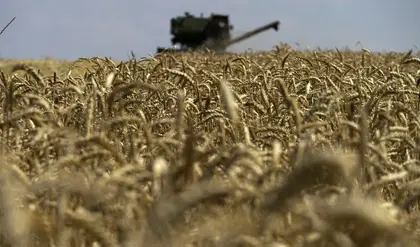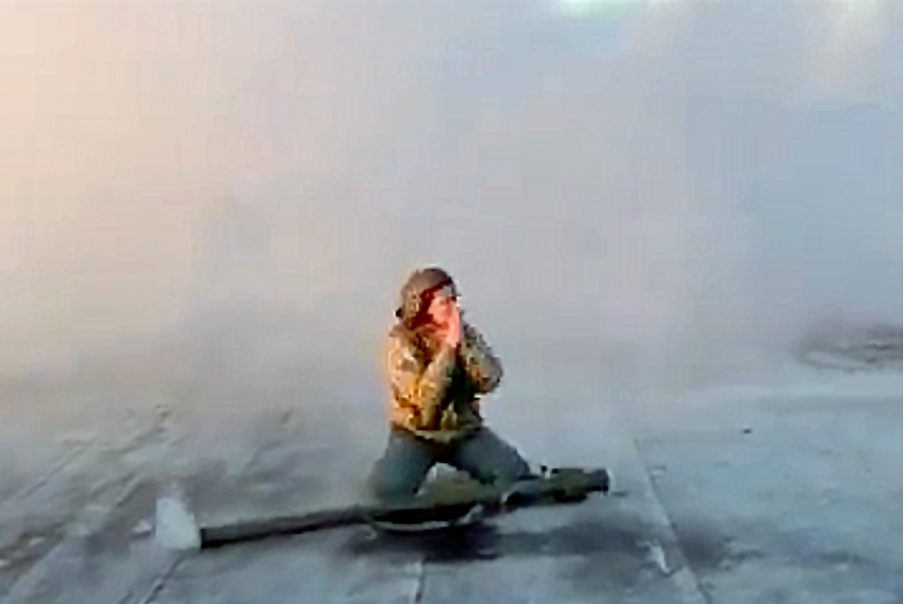Very strange things have been happening in Poland this month. Polish farmers gathered to protest against Ukrainian grain, forcing Kyiv to promise not to export grain to Poland until at least July.
It wasn’t difficult. Because it’s not as if Ukraine was exporting grain to Poland anyway. At least not officially.
What brought the farmers out, above all, is the fact that Poland is holding elections this year. With elections comes an increase in political pressure – especially from groups that are of great importance.
Poland’s Law and Justice party has its main base of support in rural regions. Therefore, the votes of farmers are very important to them. And the farmers are organizing protests – which, to their credit, have been neither violent nor scary.
Why prices have fallen
After a sharp rise last year due to Russia’s full-scale invasion, prices on the global grain market fell again because Ukraine managed to sign a grain deal. Ukrainian agricultural products returned to the world markets and prices have since stabilized.
From a Polish farmer’s viewpoint, however, it looked a little different. Prices were rising, and they were happy. They were already counting the potential increase in profits. So they postponed the sale of grain to earn even more. But then prices fell, and their expected profits melted away.
Grain is a commodity. Prices for it in Poland or elsewhere are determined primarily by the prices on commodity exchanges. So a fall in prices on the Polish market is a consequence of the fall in prices on the world market.

Germany to Send Ukraine Drones But No Long-range Missiles
The accusations of Polish farmers against Ukrainian supplies sound much like seeing a black cat crossing your path and then getting hit by a car. The car didn’t hit you because of the cat. The cat is not to blame. You just needed to look at the color of the traffic light.
Does any Ukrainian grain go to the Polish market?
Poland has a large poultry industry, so there is a need for grain. Officially, it probably doesn’t even go there. However, there are suspected to be any number of shady schemes to divert grain meant for the port. But this is a completely different story. A Polish story, in fact.
The situation with the Polish farmers also shows what problems may arise in the course of Ukraine’s further European integration. On the one hand, border smugglers will suffer. If there is no border, there is no smuggling. On the other hand, agrarian lobbyists will be active. Because for the European agricultural lobby, the integration of such a large agricultural country as Ukraine into Europe will be a major shock.
Russian grain
It seems that the Russians are actively trying to stir up the conflict – to compensate for their own setbacks in the agricultural sector.
Not long ago, three leading agricultural traders simultaneously left the Russian market. This has exacerbated Russia’s problems with the export of their agricultural products.
In addition, yields in Russia are expected to fall next season. This expected drop is a clear example of sanctions working. Restrictions on the supply of agricultural machinery mean that Russian agricultural companies will be forced to switch to domestic Russian equipment.
This equipment is, first of all, inferior. Secondly, there is a shortage of it because production requires imported parts. And thirdly, it has become quite expensive.
As a result, the resources of agricultural companies have been dramatically reduced. There is less investment – which results in a smaller harvest.
Ultimately this is a reason for Polish farmers to rejoice, as fewer exports from Russia mean higher prices on the world market. But that will be next year – after the Polish elections.
The views expressed in this opinion article are the author’s and not necessarily those of Kyiv Post.
You can also highlight the text and press Ctrl + Enter






